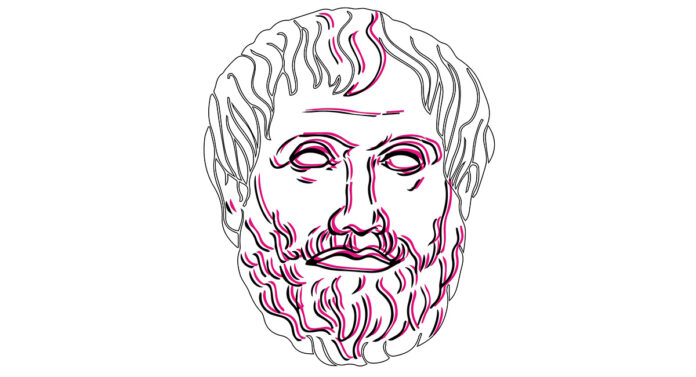Nel 1996 un grande studioso, Walter Burkert, completando il suo La creazione del sacro scrive: la religione “ … abita ancora le valli profonde del paesaggio della vita. La religione segue le orme della biologia, anche se è strettamente connessa con la primordiale invenzione del linguaggio, portatore della grande possibilità di un mondo mentale condiviso”.
Anche il sacro segue le orme della biologia, aggiungo io.
Il sacro e la parola scritta
Poi nacque, con la scrittura, scrive Burkert, “… una nuova forma di oggettività, al di là della parola orale codificata nei cervelli individuali. I riti di convalida e i giuramenti in particolare avrebbero potuto perdere la loro funzione di fronte all’uso di documenti scritti. Con il giudaismo, il cristianesimo e l’islam la parola scritta ebbe il suo massimo trionfo. Le sacre scritture garantiscono una volta per tutte le parole dette da Dio ai suoi profeti e inviati”.
Ed ecco il dubbio: forse “con la rete elettronica di una società computerizzata l’informazione condivisa e i programmi corrispondenti diventano onnipresenti e decisamente slegati dall’individuo. Ciò viene esperito, per esempio, come la ‘perdita del soggetto’ ….” . Nelle ultime righe scrive: “Forse più inquietanti sono le probabilità e il pericolo di regressione, di fondamentalismo o magari di un primitivismo risuscitato”.
Globalizzazione, digitalizzazione, sovranità
Quello che Burkert prefigura è la perdita, il dissolvimento di ogni sovranità a fronte della globalizzazione implicita nel digitale, al fatto che nel digitale tutto, e, ripeto, tutto, è nel contempo identico a sé e diverso da sé, equivalente e ineguale, e quindi non prefigura alcuna gerarchia. Decade così ogni politicità di ogni legittimità del comando o il senso stesso della progettualità sul futuro, in una regressione verso ciò che precede il costituirsi del patto sociale, verso l’homo homini lupus.
Ma non è così. Forse non è più necessario pensare il mondo secondo rigorosi dualismi, ad esempio nelle trame dell’amico/nemico e della vittima necessaria a garantire il patto, né tanto meno, attraverso una qualche presunzione di universalità del rapporto di interesse, dello scambio funzionale, della ragione ultima che può dar senso ad un mondo che questo senso ce l’ha solo caso per caso, momento per momento, bit per bit.
Un nuovo paradigma: degerarchizzare
Forse è il politico che va ripensato sospendendo il dispositivo vittimario o la presunzione di una ragione ultima, anche quella che pretenderebbe di indicare le ragioni per una pace perpetua o per un governo planetario. Si tratta di ripensare il potere non nella sua forma assoluta, ma, nel caso per caso, un potere distribuito e distributivo, degerarchizzato. Lo stesso che viene programmaticamente concesso in una navicella spaziale: là dove accade qualcosa di imprevisto, a comandare non dovrà essere chi detiene preventivamente il comando, ma chi sa rispondere all’imprevisto. Si tratta di ripensare le modalità del kibernetes. É così che il sacro può essere depotenziato.
Leggi i precedenti appuntamenti:
Il cristianesimo, il sacro e la politica
In 1996 a great scholar, Walter Burkert, while was completing his book The Creation of the Sacred, wrote: religion “… still inhabits the deep valleys of the landscape of life. Religion follows in the footsteps of biology, even if it is closely connected with the primordial invention of language, the bearer of the great possibility of a shared mental world.”
I should add that the sacred also follows in the footsteps of biology.
The sacred and the written words
Then, Burkert wrote that writing was invented “… a new form of objectivity, beyond the oral word, which is encoded in individual brains. In particular, the validation rites and oaths could have lost their function in the face of the use of written documents. With Judaism, Christianity and Islam the written word had its greatest triumph. The sacred scriptures guarantee once and for all the words spoken by God to his prophets and messengers.”
Here is the doubt: perhaps “with the electronic network of a computerized society, shared information and corresponding programs become omnipresent and decidedly disconnected from the individual. This is experienced, for example, as the ‘loss of the subject’ …. ” . In the last lines Burkert wrote: “Perhaps the probabilities and the danger of regression, of fundamentalism or perhaps of a resurrected primitivism are more disturbing.”
Globalization, digitization, sovereignty
What Burkert foreshadows is the loss, the dissolution of all sovereignty in the face of the globalization implicit in the digital. Moreover, he foresees that in the digital everything, and, I repeat, everything, is at the same time identical to itself and different from itself, equivalent and unequal, and therefore it does not prefigure any hierarchy. Thus, any political nature of any legitimacy of command or the very sense of planning for the future declines, in a regression towards what precedes the establishment of the social pact, towards homo homini lupus.
However, it is not so. Perhaps it is no longer necessary to think of the world according to rigorous dualisms, such as friend / enemy and the victim necessary to guarantee the pact. It is much less needed some presumption of universality of the relationship of interest, of functional exchange, of ultimate reason which can give meaning to a world that has this sense only case by case, moment by moment, bit by bit.
A new paradigm: de-hierarchy
Perhaps it is the political which needs to be rethought by suspending the victim mechanism or the presumption of an ultimate reason, even the one that would claim to indicate the reasons for a perpetual peace or for a planetary government. It is a question of rethinking power not in its absolute form, but, in case by case, a distributed and distributive power, de-hierarchized. The same that is programmatically granted in a spacecraft: where something unexpected happens, the leader will not be whoever holds the command in advance, but who knows how to respond to the unexpected. It is a question of rethinking the ways of kibernetes. This is how the sacred can be weakened.
You can also read the previous articles:








